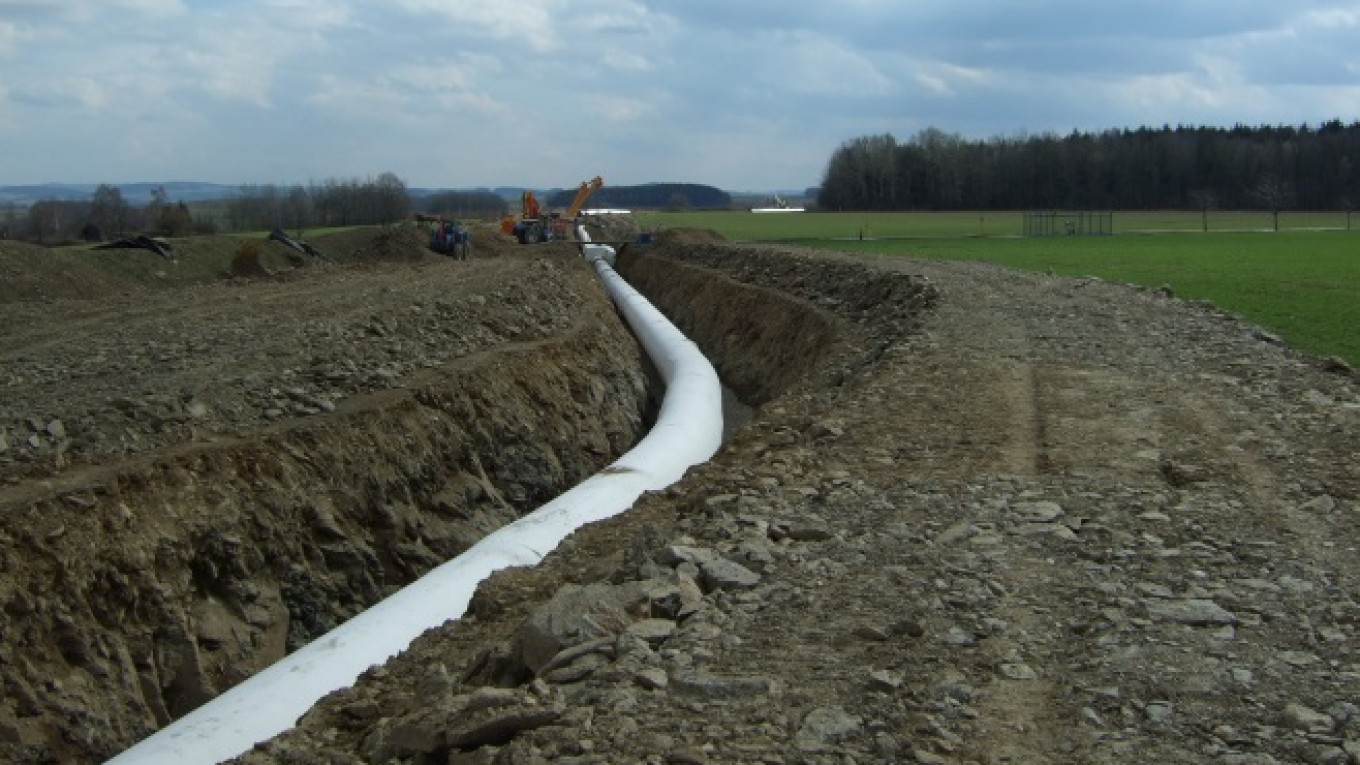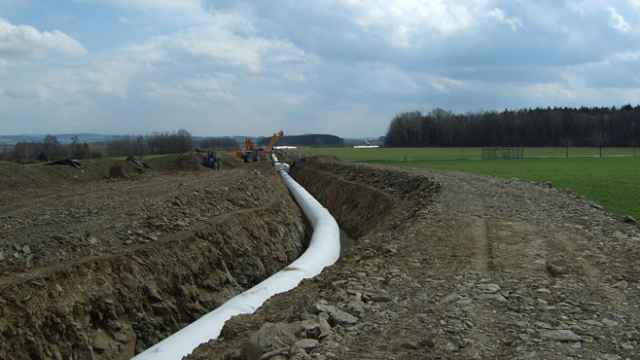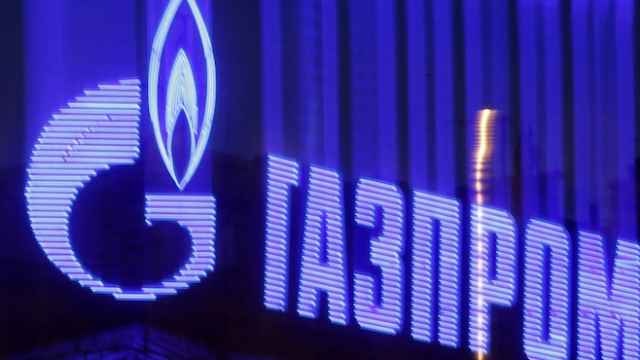The European Commission said Monday it had pushed back a deadline for deciding whether to give Russia more access to the Opal gas pipeline across Germany until the end of January from the end of October.
Russian gas exporter Gazprom is currently allowed only limited access to the pipeline under a European Union law which seeks to prevent energy suppliers from dominating infrastructure.
But no-one else has taken up the spare capacity on Opal, which provides a link between Russia's Nord Stream pipeline to Germany and the Czech Republic.
"The Commission has agreed with the German Federal Network Agency (Bundesnetzagentur) to prolong the deadline for issuing a decision on Opal. The reason ... is that certain technical aspects require further attention," a Commission official said.
The official, speaking on condition of anonymity, said it was difficult to say exactly when a decision would be made. The new deadline was the end of January 2015, although it could be extended further.
A decision on whether to grant Gazprom greater access has already been delayed several times.
The latest delay comes at a time of high tension between the EU and Russia over the Ukraine crisis. The conflict and Gazprom's decision in June to cut off gas supplies to Ukraine over unpaid bills has heightened the EU's determination to reduce its energy dependence on Russia.
Gazprom said last Wednesday it had failed to reach a deal at talks with the European Commission on the Opal gas pipeline and wanted new negotiations.
In Brussels last week, Russian Energy Minister Alexander Novak criticized the failure as a political decision.
Ukraine, Russia and the EU signed a deal last Thursday that will see Moscow resume vital supplies of gas to its former Soviet neighbor over the winter months in return for payments funded in part by Kiev's Western creditors.
A Message from The Moscow Times:
Dear readers,
We are facing unprecedented challenges. Russia's Prosecutor General's Office has designated The Moscow Times as an "undesirable" organization, criminalizing our work and putting our staff at risk of prosecution. This follows our earlier unjust labeling as a "foreign agent."
These actions are direct attempts to silence independent journalism in Russia. The authorities claim our work "discredits the decisions of the Russian leadership." We see things differently: we strive to provide accurate, unbiased reporting on Russia.
We, the journalists of The Moscow Times, refuse to be silenced. But to continue our work, we need your help.
Your support, no matter how small, makes a world of difference. If you can, please support us monthly starting from just $2. It's quick to set up, and every contribution makes a significant impact.
By supporting The Moscow Times, you're defending open, independent journalism in the face of repression. Thank you for standing with us.
Remind me later.






